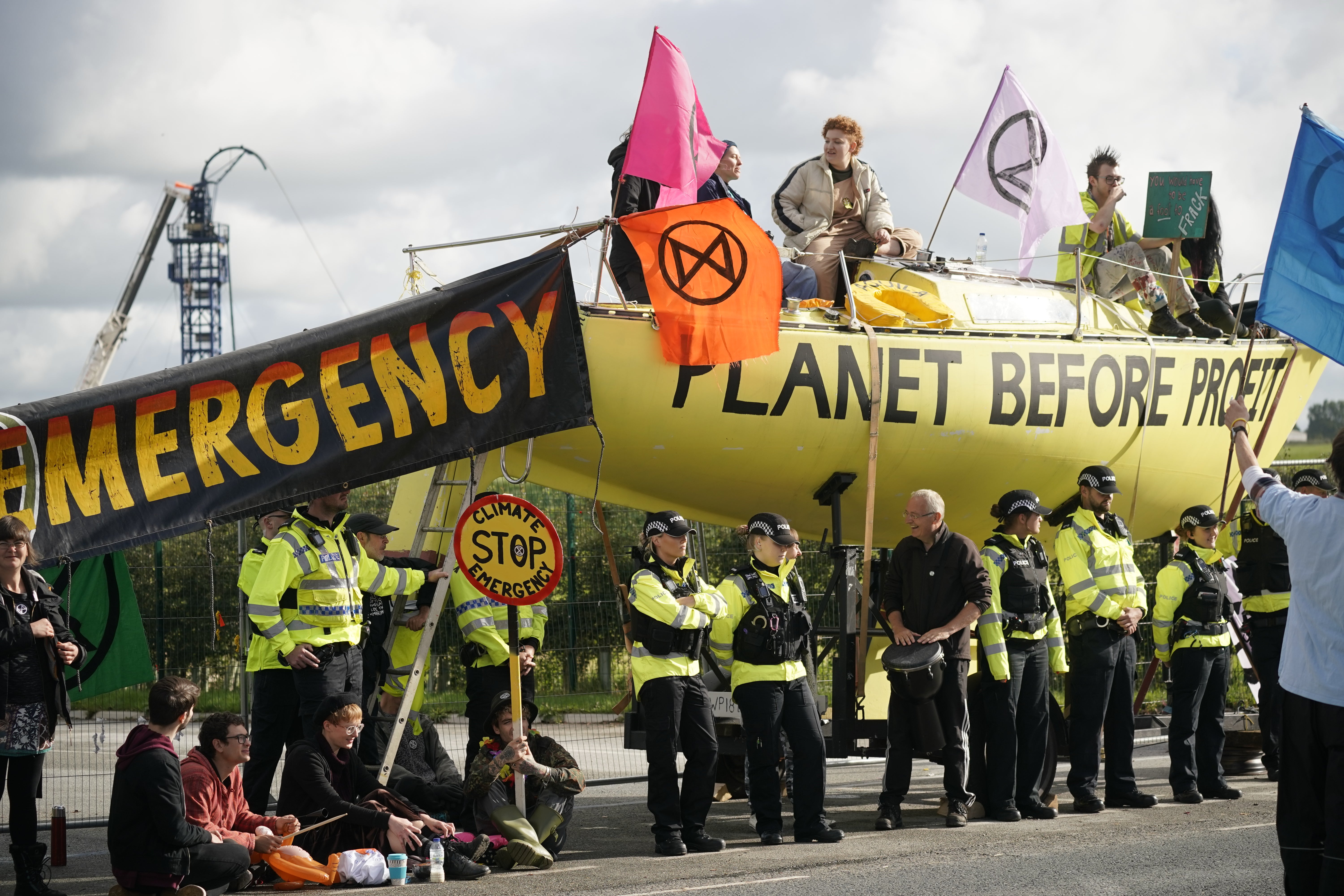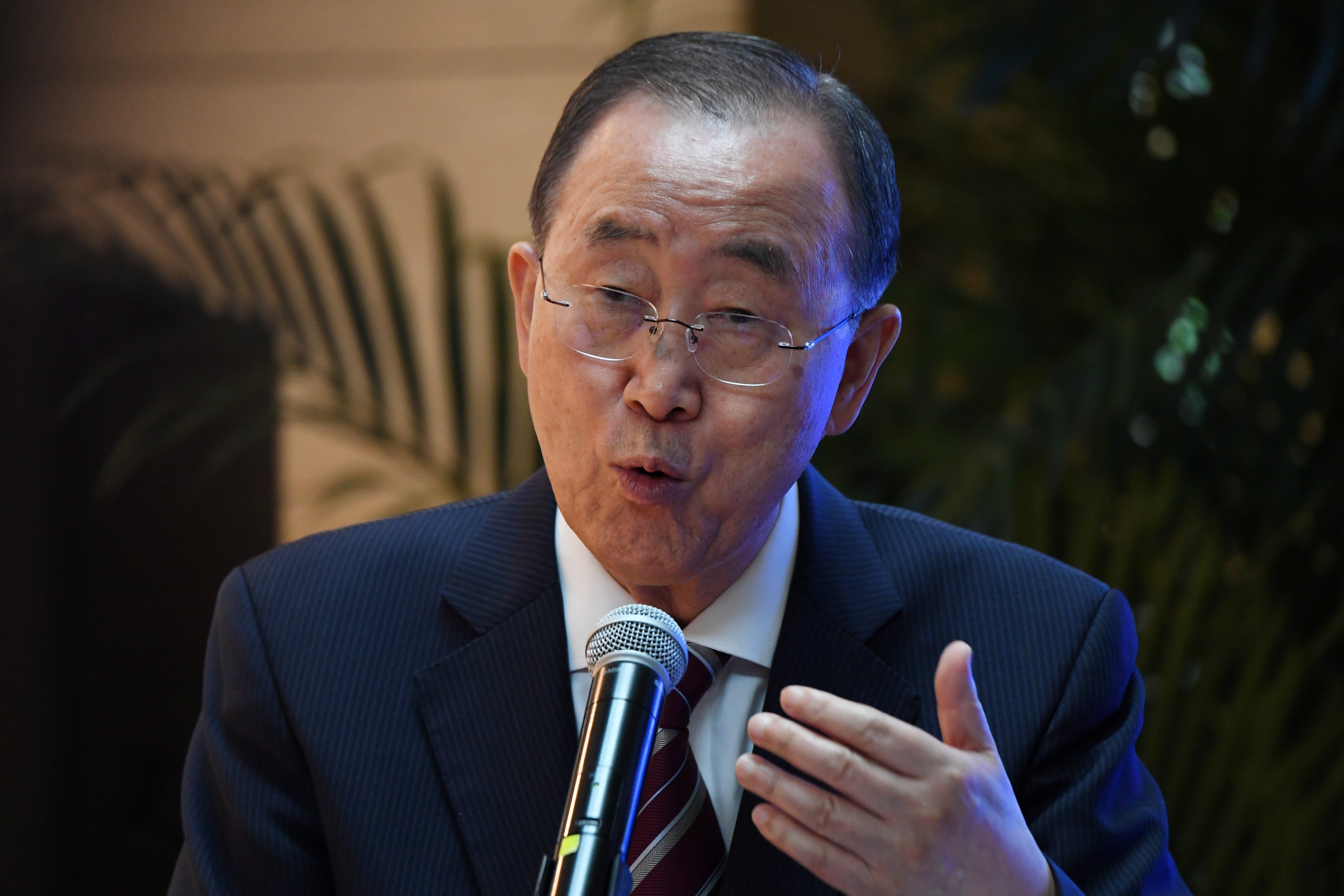‘Not a good idea’: Ban Ki-moon urges UK not to bring back fracking after Russia oil ban
‘Return to shale gas extraction would not be in ‘long term interest of humanity,’ says former UN secretary-general

Your support helps us to tell the story
From reproductive rights to climate change to Big Tech, The Independent is on the ground when the story is developing. Whether it's investigating the financials of Elon Musk's pro-Trump PAC or producing our latest documentary, 'The A Word', which shines a light on the American women fighting for reproductive rights, we know how important it is to parse out the facts from the messaging.
At such a critical moment in US history, we need reporters on the ground. Your donation allows us to keep sending journalists to speak to both sides of the story.
The Independent is trusted by Americans across the entire political spectrum. And unlike many other quality news outlets, we choose not to lock Americans out of our reporting and analysis with paywalls. We believe quality journalism should be available to everyone, paid for by those who can afford it.
Your support makes all the difference.The former head of the United Nations has urged the UK not to lift its fracking ban in an effort to bolster energy resilience in the wake of Russia’s invasion of Ukraine.
Ban Ki-Moon said a return to shale gas extraction, under consideration by ministers, would not be in the “long-term interest of humanity”
Boris Johnson is expected to set out an energy security strategy this week he seeks to move away from a reliance on foreign oil.
The government announced last week it would phase out imports of Russian oil, which make up some 8 per cent of UK demand, by the end of next year.
A No 10 spokesperson said bringing back fracking was one option under consideration.
Mr Ban, who was UN secretary-general between 2007 to 2016, warned this would “not be a good idea”.
“It’s [a] very short-term gain that will lose the long -erm interest of humanity,” he told The Guardian. “I hope the politicians have some longer vision for the benefit of the whole world.”

The pivot away from Russian oil has triggered a debate over how the country should replace Russian imports. Some Conservative backbenchers have amplified calls for the UK to support fracking and to expand North Sea exploration, while climate activists and energy analysts have called for the government to accelerate its transition to renewables and better insulate British buildings.
The UK government imposed a moratorium on fracking in 2019 following protests over concerns the drilling could cause earthquakes. The Conservative Party’s election manifesto the same year vowed “we will not support fracking unless the science shows categorically that it can be done safely”.
Oil and gas prices have spiked in the wake of the invasion of Ukraine feeding into a broader cost of living crisis in Britain. But experts have said the extraction of shale gas in the UK was unlikely to make a material impact on gas supplies or drive down prices because they are set through international markets. Meanwhile, North Sea fields proposed earlier this year would not cut costs for customers and would not come fully online until 2028, according to the Energy and Climate Intelligence Unit, a group that supports informed debate on energy and climate change issues in the UK.
Mr Johnson’s energy security strategy is expected to increase extraction of gas and oil from the North Sea, as well as mapping out how the UK can replace Russian fossil fuels with alternative supplies, nuclear and renewables. Last week, the European Union announced a proposal to end all imports of Russian oil and gas “well before 2030” and accelerate the clean energy transition.
Ban, the former South Korean foreign minister, called on countries to embrace renewables instead of relying on fossil fuels for energy.
“There is no time for us to lose,” he said. “Even under normal conditions [before the Ukraine war] we were far behind the pace.”
Last month, the world’s leading authority on the climate crisis, the Intergovernmental Panel on Climate Change (IPCC), published the second chapter of its most sweeping assessment in seven years, warning that the climate crisis is a threat to human wellbeing and the health of the planet. It called for urgent, transformative action to secure the planet’s future.
Current UN secretary general Antonio Guterres described the report as “an atlas of human suffering” and a “damning indictment” of failed climate leadership.
Russia’s invasion of Ukraine will only make the fight against climate change more difficult, according to Mr Ban, who is now the deputy chair of The Elders, an independent group of global leaders working together for peace, justice and human rights.
“This [war] will impact the international community’s effort to address climate issues, and the pandemic issues,” he said. “I am concerned that some European countries are even now considering how to address oil and energy shortages [by seeking] exports of some other [sources of] gas or oil.”
Join our commenting forum
Join thought-provoking conversations, follow other Independent readers and see their replies
Comments